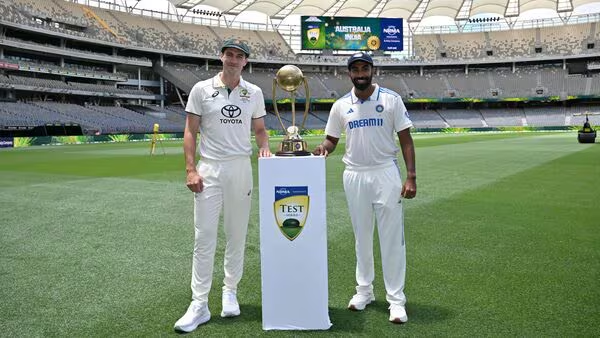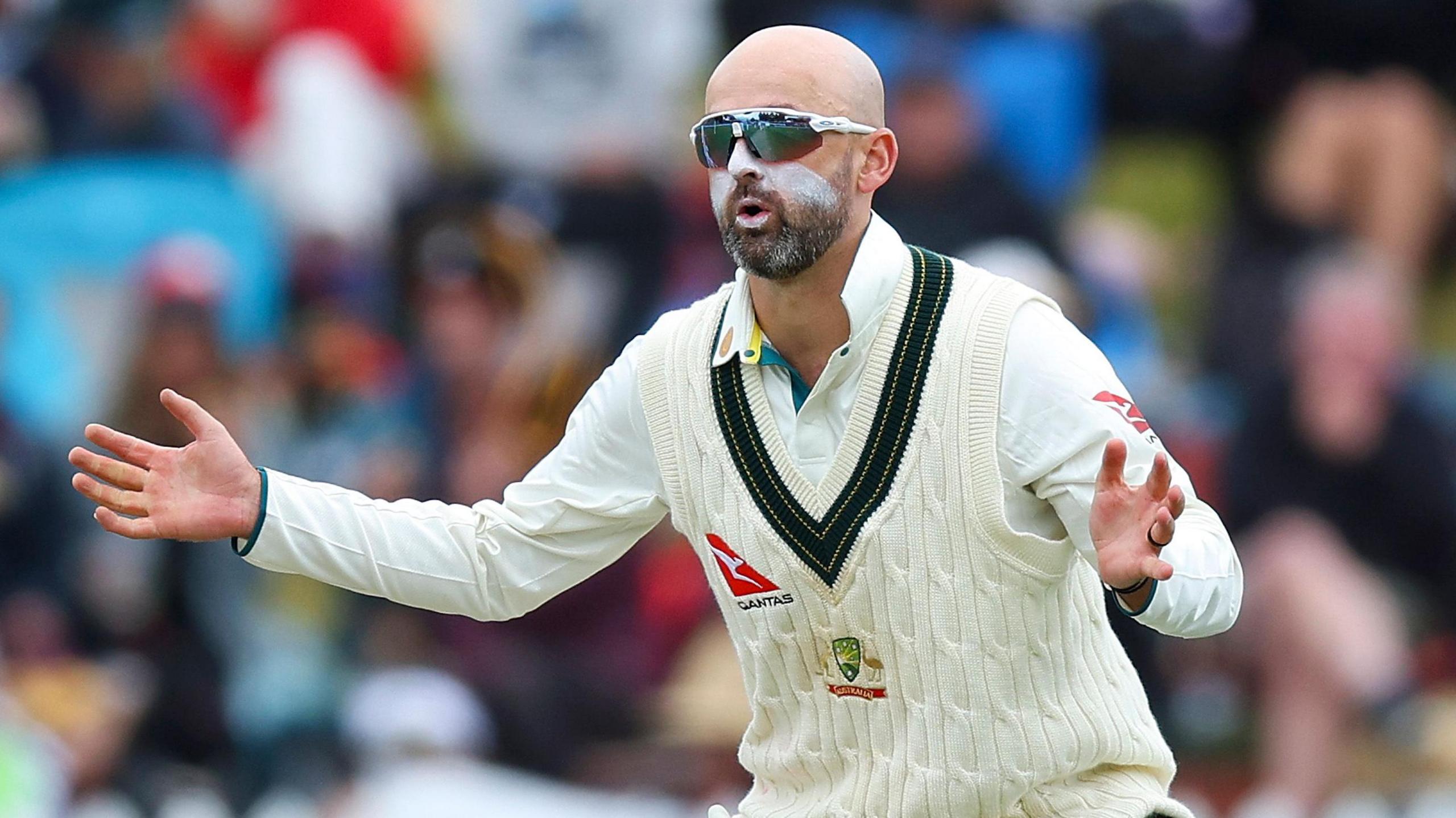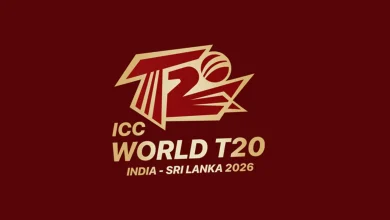
Steve Smith (left), Virat Kohli (centre) and Nathan Lyon (right) all have questions to consider before the series.
One of the biggest series in world cricket is almost upon us again: Australia v India.
The tourists have claimed famous 2-1 victories in their past two trips and are the only side to win a Test series in Australia since South Africa in 2016.
Rohit Sharma’s side face the challenge of a five-test series this winter, though, following a shock 3-0 home series defeat by New Zealand.
Here are five talking points that could be key to deciding who wins the 2024-25 Border-Gavaskar Trophy, which starts at 02:20 GMT on Friday, 22 November.
Australia’s search for Warner’s replacement
When David Warner retired in January, Australia promoted Steve Smith from four to opener.
An average of 28.50 and just one half-century in eight innings meant he failed to set the world alight, but he felt he “could still do a job there.”
However, with all-rounder Cameron Green needing back surgery, the Aussies had a gap in their middle order and opted to move Smith back to four.
That leaves a hole alongside Usman Khawaja at the top of the order, and there have been plenty of questions about who would fill it—including Warner flirting with the idea of a return.
Australia have plumped for Queensland’s Nathan McSweeney, who has averaged 97 in two Sheffield Shield matches this season. Those runs have come at three and four, though.
He opened in a warm-up game against India A and made 14 and 25.
Australia’s batters haven’t had much red-ball exposure either, with Smith and Travis Head playing just one Sheffield Shield game and scoring three and 40, respectively.
Marnus Labuschagne and Khawaja fared slightly better—both averaged 48 in two and three matches, respectively—but there are questions about their preparation.
Will India’s batting find form to dominate again?
It might sound obvious that India has scored more runs than Australia in the past two series, but that was really one of the key differences.
In the 2018-19 series, India’s average first-innings score 327 dwarfed Australia’s 253. That gap was reduced to 15 runs (288 to 273) in 2020-21.
India’s top six in 2018-19 averaged 37.5, compared to Australia’s 27, but the hosts squeezed that last time.
India’s middle order (five to eight) outscored Australia comfortably in both series (34 to 24.9 in 2018-19 and 33.4 to 26 two years later).
However, there are concerns about India’s batting after their series against New Zealand.
They only scored 250 or more in that series and were bowled out for 46, 156, and 121 across the three matches.
Rishabh Pant, who has been crucial in their previous wins over Australia, is in form and averaged 43.50 in that series, but captain Rohit Sharma averaged just 15.16 and Virat Kohli 15.5.
Yashasvi Jaiswal (31.66), Shubman Gill (36) and Sarfaraz Khan (28.5) also struggled, as only Pant made more than one half-century in the series.
Kohli and Rohit only averaged 22.72 and 29.4 in Tests in 2024, and it is hard to see India winning if those numbers don’t rise.
Rohit will miss the first test due to the birth of his second child, so India will have to find a new partner for Jaiswal at the top of the order list. Bowler Jasprit Bumrah will lead India in Rohit’s absence.
Can India’s pacers match Australia again?
Another of the critical components in India’s wins has been their pace attack.
They’ve built a battery of quicks led by the superb Bumrah. That has made them a formidable side in all conditions, not just at home, where the defeat by New Zealand was their first in 12 years.
Bumrah was the joint-leading wicket-taker in the 2018-19 series, claiming 21 at an average of 17.
Mohammed Shami and Ishant Sharma ably supported him as they outperformed the Australian quicks.
In that series, India’s fast bowlers averaged 23 and conceded 2.64 runs, compared to 31.7 and 2.73 by Australia.
That did flip in 2020-21, as Bumrah only claimed 11 wickets and Shami was unavailable. India’s pacers averaged 30.9 to Australia’s 26.2.
Bumrah, Mohammed Siraj, and Akash Deep also struggled in the recent New Zealand series, picking up seven wickets compared to the Kiwi seamers’ 20.
Which of the spinners will come out on top?

Nathan Lyon has claimed 530 Test wickets, six fewer than Ravichandran Ashwin.
This series will have the seventh and eighth-most successful bowlers in Test history, with India’s Ravichandran Ashwin facing Australia’s Nathan Lyon.
How the respective batting line-ups handle that pair and India all-rounder Ravindra Jadeja may go a long way toward deciding the series.
Lyon took 21 wickets in the 2018-19 series, but that dropped to nine two years later as India combatted the off-spinner.
Ashwin and Jadeja haven’t always been part of India’s team when they toured Australia, but when selected, they’ve performed well.
India’s spinners averaged 28.6 at an economy rate of 2.27, compared to 36.2 and 2.82 by Australia in 2018-19.
The difference in the average was even more stark two years later, at 26.8 to 59.
Lyon may play a more significant role,e though, with India losing 37 wickets to spin against New Zealand.
Could the schedule help Australia? And race for the World Test Championship final
Cricket Australia has rejigged schedules and the order of the grounds where Tests are played.
The Optus in Perth, where Australia have won all four Tests since it opened in 2018, will host the series’ first game.
Adelaide and Brisbane follow, where Australia have won nine of 10 Tests and eight of 10 in the past decade. One defeat at each venue has come against India, though.
Melbourne is the Boxing Day Test, as is tradition before Sydney concludes the series. India has won twice at the Melbourne Cricket Ground in the past 10 years, with Australia winning six of their Tests there, while the Sydney Cricket Ground has had six draws in that time.
Australia may have frontloaded the series with grounds that suit them and could help them as they look to seal a place in the World Test Championship final.
To secure their place, the holders need five wins across this series and a two-test tour of Sri Lanka in January and February. Other results may mean that four or even three wins will be enough.
New Zealand’s heavy defeat dented India’s chances of reaching a third successive final. They travel to Australia needing four wins from the five Tests to guarantee a place in June’s final at Lord’s.
How to follow India V Australia on the BBC
All matches will be accompanied by ball-by-ball commentary on BBC Sounds, BBC Radio 5 Sports Extra and the BBC Sport website and app (UK users only).
ABC Grandstand in Australia will provide the commentary.
The commentary team includes TMS regulars Alison Mitchell, Jim Maxwell, and Harsha Bhogle, plus Australia’s leading Test pace wicket-taker Glenn McGrath, former India captain Sunil Gavaskar, ex-Australia coach Darren Lehmann, and former Australia batter Phil Jaques.
Video highlights of all the key moments will also be available on the BBC Sport website and app shortly after they occur and at the end of play.




